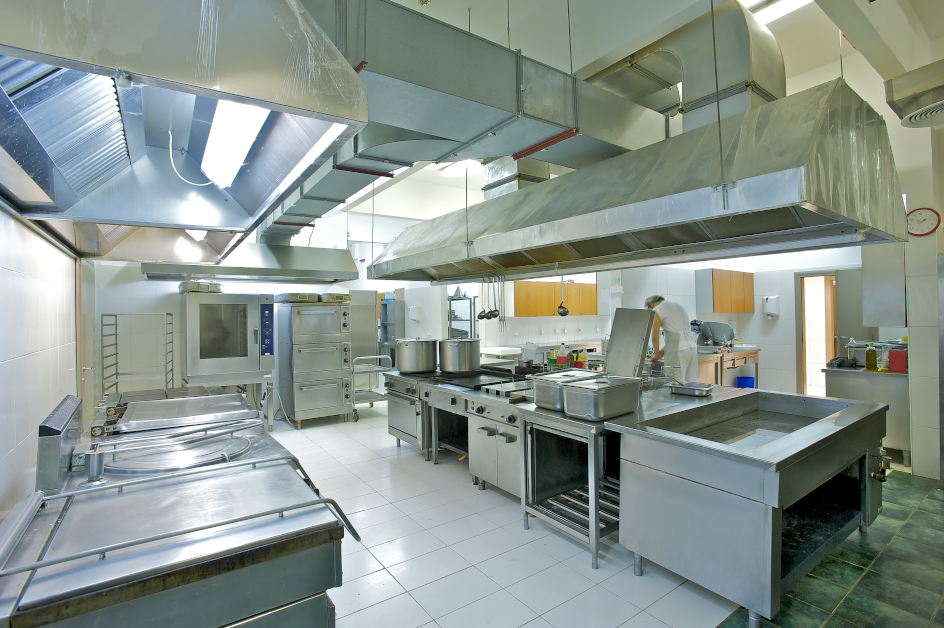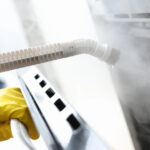Cleaning the kitchen exhaust hood in a restaurant is extremely important for several critical reasons, primarily revolving around safety, health, and operational efficiency. Here’s a breakdown of the key benefits:
1. Fire Prevention:
- Reduced Fire Hazard: Commercial kitchens produce a significant amount of grease and smoke. This grease-laden vapor gets drawn into the exhaust hood system, where it accumulates on filters, in ducts, and on fans. Grease is highly flammable, and even a small spark or flame from cooking equipment can ignite this buildup, leading to a potentially catastrophic fire. Regular cleaning removes this flammable grease, significantly reducing the risk of kitchen fires.
- Prevents Fire Spread: If a fire does start in the cooking area, a clean exhaust system is less likely to contribute to its spread. Grease buildup can act as fuel, allowing flames to travel rapidly through the ductwork to other parts of the building.
2. Improved Air Quality:
- Removal of Pollutants: A clean hood and exhaust system effectively remove smoke, fumes, odors, and airborne grease particles from the kitchen environment. This improves the air quality for kitchen staff, reducing the risk of respiratory issues, headaches, dizziness, and nausea.
- Better Customer Experience: Proper ventilation prevents cooking odors from permeating the dining area, ensuring a more pleasant experience for your customers.
3. Health and Hygiene:
- Prevents Bacteria and Mold Growth: Grease buildup creates a breeding ground for bacteria, mold, and mildew, especially in the warm and humid environment of a kitchen exhaust system. These contaminants can release toxins into the air and potentially lead to food contamination and foodborne illnesses. Regular cleaning eliminates these health hazards.
- Pest Control: Accumulated grease and food particles can attract pests like rodents and insects, creating unsanitary conditions. Cleaning removes these food sources, helping to prevent infestations.
4. Operational Efficiency and Cost Savings:
- Improved Ventilation System Performance: Grease and debris buildup can restrict airflow in the exhaust system, making it work harder and less efficiently. This leads to increased energy consumption and higher utility bills. Cleaning restores proper airflow, improving the system’s performance and reducing energy costs.
- Extended Equipment Lifespan: When the exhaust system operates efficiently, it puts less strain on the fan motor and other components, potentially extending their lifespan and reducing the need for costly repairs or replacements.
- Optimal Cooking Equipment Performance: A properly functioning exhaust system helps maintain a consistent temperature around cooking equipment, which can contribute to more efficient and consistent cooking results.
5. Compliance with Regulations and Insurance:
- Meeting Health and Safety Codes: Most local and national health and safety regulations, such as NFPA 96 (in the United States), mandate regular cleaning of commercial kitchen exhaust systems. Failure to comply can result in fines, penalties, and even temporary or permanent closure of the restaurant.
- Insurance Requirements: Many insurance providers require regular hood cleaning as a condition of coverage. A lack of proper maintenance can void your insurance policy in the event of a fire. Maintaining cleaning records can be crucial for insurance purposes.
In summary, regular and thorough kitchen hood cleaning is not just a cosmetic task; it’s a vital investment in the safety, health, efficiency, and legal compliance of your restaurant. It protects your staff, customers, and business from significant risks.


